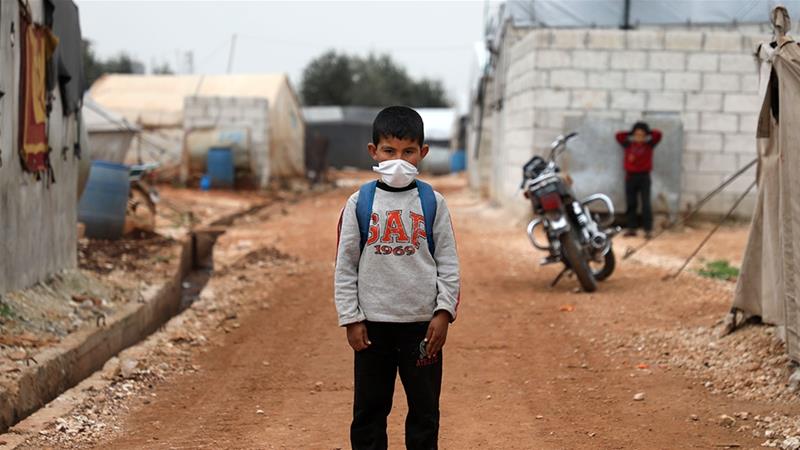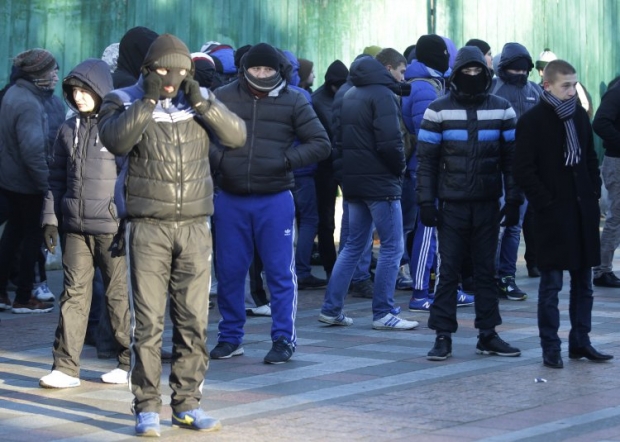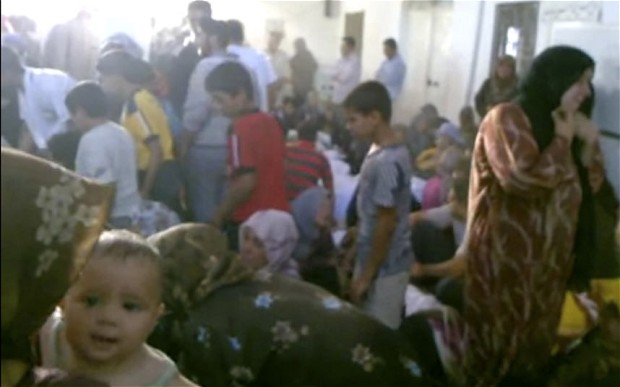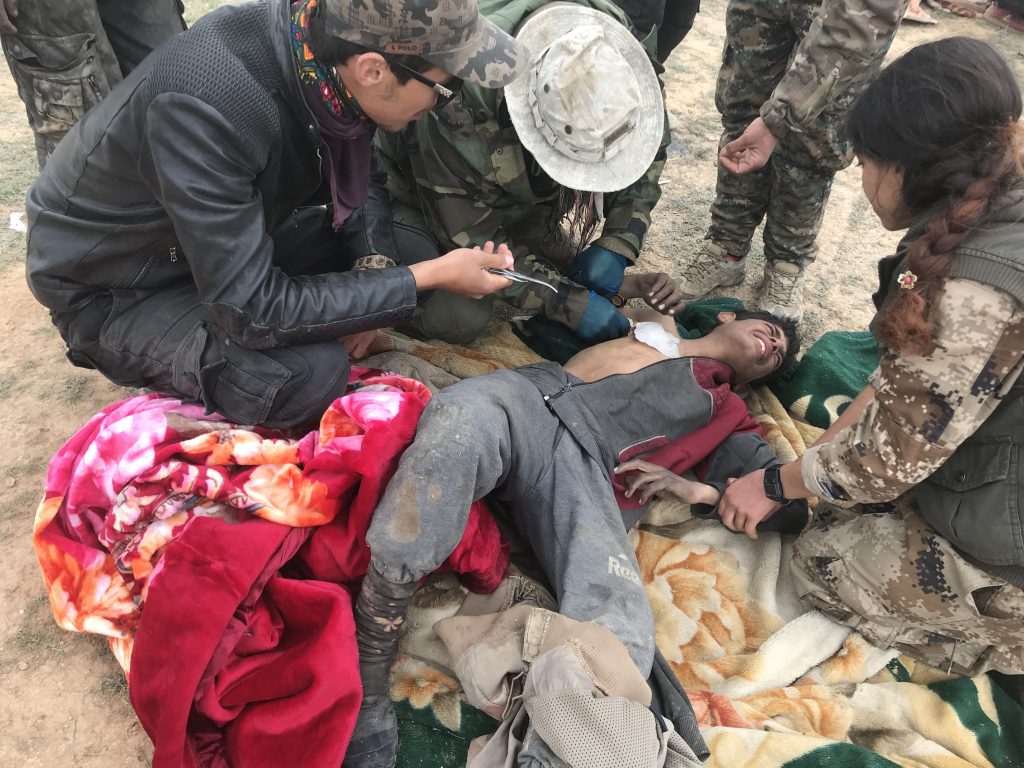by Charlotte Hooker

Governments across the globe are acting on the informed assumption that deaths related to COVID-19 will rise so long as the number of cases exceeds the capacity of domestic healthcare services. The necessary response is compulsory social isolation and strict hygiene measures. In China, Europe, and the US, public places have been closed, mass gatherings banned, and public awareness campaigns have been initiated to offer guidance on how to wash one’s hands effectively. But in war-torn countries, where governments and healthcare systems have collapsed, running water is scarce, and soap is an unaffordable luxury, these measures are near impossible to implement. COVID-19, just like the countless diseases before it, will “ruthlessly exploit the conditions created by war.” Without a collective global response that accounts for the needs of conflict states and its displaced populations, the consequences of COVID-19 could be catastrophic.
The connection between war and disease is well documented in history. Before the 20th Century, combatants were more likely to die from disease than they were from battle wounds. In the Crimean War, for example, British soldiers died from sickness almost eight times more than they did from conflict-induced injuries (Pennington, 2019). As medicine advanced and basic hygiene practices improved, the emergence and spread of infectious disease amongst combatants was curbed considerably. However, this did little to contain the influenza pandemic of 1918–1919. The pandemic coincided with the mass migration of soldiers back to their home countries and resulted in the death of between 20 million–100 million people worldwide. This highlighted the burden that war placed on the health of civilian populations, which has only worsened as densely populated urban settings have become the primary hosts of major hostilities (Haraoui, 2018).
In Syria, healthcare services became an integrated part of the conflict. Between 2011 and 2014 alone, 57% of public hospitals were damaged and 160 doctors were jailed or killed. Vaccination coverage fell from 91% in 2010 to 45% in 2013 contributing to the re-emergence of polio, measles, and cutaneous leishmaniasis in Syria and neighbouring countries, particularly amongst displaced populations. COVID-19 presents the greatest threat to these people.
According to the UN High Commission on Refugees, there are currently 70.8 million forcibly displaced people worldwide, most of whom live in deplorable living conditions. On the Greek island of Lesbos, the Moria refugee camp “has one water point for every 1,300 people and one toilet for every 200 people,” says Apostolos Veizis, Director of Medical Operational Unit at Doctors Beyond Borders for Greece. In Idlib, refugee camps in north-western Syria, there are 1.4 doctors per 10,000 people, only 100 adult ventilators and fewer than 200 intensive care unit beds. Fatima Um Ali, a Syrian refugee, and her family have avoided death on multiple occasions since fleeing the Syrian conflict, “but what now,” she says, “we are going to be afraid of [COVID-19].” Without running water and soap, and no chance of isolating her family of 16 in the crowded settlements of Idlib, it will be difficult for Fatima’s family to dodge death once more.
Displaced populations are often dependent upon humanitarian assistance for survival. This is because healthcare services in conflict zones have long since collapsed, and any remaining government regime usually lacks funds or geographic reach to mobilise the necessary health, food, or economic resources. Bangladesh, for example, relies upon youth activists to educate Rohingya refugees from Myanmar on the importance of proper hygiene. Even in camps that are better off, conditions are ripe for COVID-19 to run rampant. According to Muriel Tschopp, Jordan Country Director at the Norwegian Refugee Council, the quasi-lockdown in Jordan in response to COVID-19 has grounded all Non-Governmental Organizations (NGOs), preventing them from providing daily service assistance, and reducing cash opportunities for refugees as local organisations are forced to halt business.
That is not to say that action has stopped entirely. In a recent interview, Muriel Tschopp explains that they have been using existing mechanisms, such as their database of refugee contact details, to contact those living in temporary settlements to provide guidance on how to limit the spread of disease. Similar action has to be taken by other NGOs. Doctors Beyond Borders representatives explain that they have been working with displaced peoples living in the camps to ensure the populations have access to information that will prevent disease spread and reduce panic. But this is not enough.
What is required is an international commitment to the protection of basic needs and care of conflict-affected populations. In a virtual press conference on March 23, 2020, the UN Secretary-General António Guterres called for “an immediate global ceasefire in all corners of the world.” Warring parties in some states, including Yemen and Cameroon, have agreed to the ceasefire in order to allow focus on the fight against COVID-19. This is a good start. Now, states across the world must mobilise funds to support the provision of basic resources such as water sanitation systems, hygiene kits, and food over the coming months, with immediate effect—if there is one lesson the world can learn from the 1918 flu, it is that early and sustained action saves lives.
Some believe that it is the duty of the government to prioritise its own citizens. The Trump Administration is proposing a USD$3 billion cut in funding for global health programmes, including halving its funding for the World Health Organisation who currently leads the fight against COVID-19. But if we turn our focus inward, and let fear be used as ammunition to stigmatise those who are not ‘one of us,’ we will have failed the test of humanity. A failure to address the basic needs of conflict-affected populations will mean thousands of needless deaths and this will not be contained to displaced populations. Disease knows no borders, so the only way to prevent the spread across temporary settlements, neighbouring states, and beyond is to ensure universal preparedness. A collective global response that accounts for all human life is crucial in the fight against COVID-19. The world has come together in the past to fight common evils. We can do it again.
Charlotte is studying for a MA in International Relations at the Department of War Studies, King’s College London. Prior to postgraduate study, Charlotte studied Politics and Economics BSc at the University of Southampton where she was awarded the highest dissertation mark in the discipline. During her undergraduate studies, she completed a Year in Employment at Ofgem, supporting work on domestic energy policy. Her research interests include space security, cybersecurity, energy security and the role of industry in the fight against climate change, and the international political economy and security implications of a rising China.








